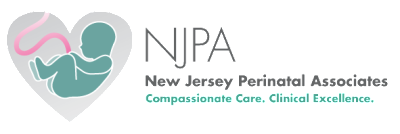March 2020 Updates from NJPA
Pregnancy and Coronavirus
NJPA is committed to ensuring the safety of our patients and employees, particularly among the recent concern and outbreak of the COVID-19 virus. NJPA continues to adhere to the latest guidance from the Centers for Disease Control and Prevention (CDC), the Society of Maternal Fetal Medicine (SMFM), the American College of Obstetrics and Gynecology (ACOG) and the New Jersey Department of Health.
Across all of our office sites, NJPA is implementing safety precautions to help limit the potential exposure to COVID-19. These preventive measures include:
- Screening for possible symptoms of and exposures to COVID-19 for all patients and visitors
- Rescheduling of appointments for patients with possible symptoms or exposure to COVID-19
- Only 1 adult visitor allowed to accompany the patient to her appointment
- Education of our staff regarding importance of handwashing
As a current patient, if you are experiencing flu-like symptoms such as fever, cough, shortness of breath, sore throat, etc., please call our office prior to your appointment. Rest assured that our office staff will reschedule your appointment as soon as it is safe to do so. In addition, if you have traveled in the last 14 days, please contact our office.
It is NJPA’s goal to keep all of our patients healthy, reduce the spread of infection and make sure you have accurate and up-to-date information.
It is important to note that data on the possible effects of COVID-19 on pregnancy is very limited.
Pregnant women experience immunologic and physiologic changes which might make them more susceptible to viral respiratory infections, including COVID-19. Pregnant women also might be at risk for severe illness, morbidity and mortality compared to the general population as observed in cases of other related coronavirus infections (such as SARS-CoV and influenza).
Adverse infant outcomes (such as preterm birth) have been reported among infants born to mothers positive for COVID-19 during pregnancy. However, this information is based on limited data and it is not clear that these outcomes were related to maternal infection.
At this time, it is unclear if COVID-19 can cross through the transplacental route to the fetus. In limited recent case series of infants born to mothers infected with COVID-19, none of the infants have tested positive for the virus. In addition, virus was not detected in samples of amniotic fluid or breast milk.
Currently, there is no specific treatment or vaccine for COVID-19 so pregnant women should engage in usual preventive actions to avoid infection such as frequent hand washing and avoiding people who are sick.
Internet Resources
- https://www.cdc.gov/coronavirus/2019-nCoV/index.html
- https://www.acog.org/Clinical-Guidance-and-Publications/Practice-Advisories/Practice-Advisory-Novel-Coronavirus2019
- https://s3.amazonaws.com/cdn.smfm.org/media/2262/COVID19_PDF.pdf
Please note that New Jersey Perinatal Associates (NJPA) has developed these best practice recommendations based on a review of current literature and expert opinion. They are not intended to establish standards or absolute requirements and these recommendations do not guarantee a specific outcome. All recommendations and best practices should be considered in the context of each patient’s individual circumstances and clinical evaluation.
To download this newsletter, please click here.
